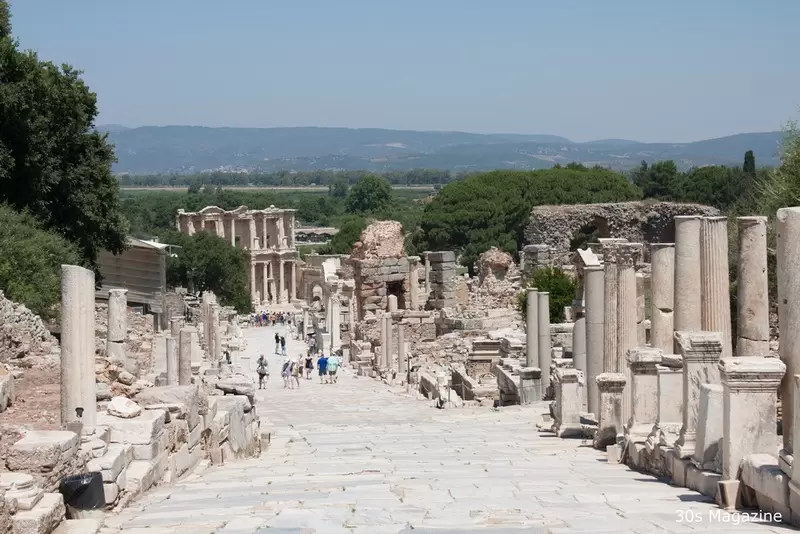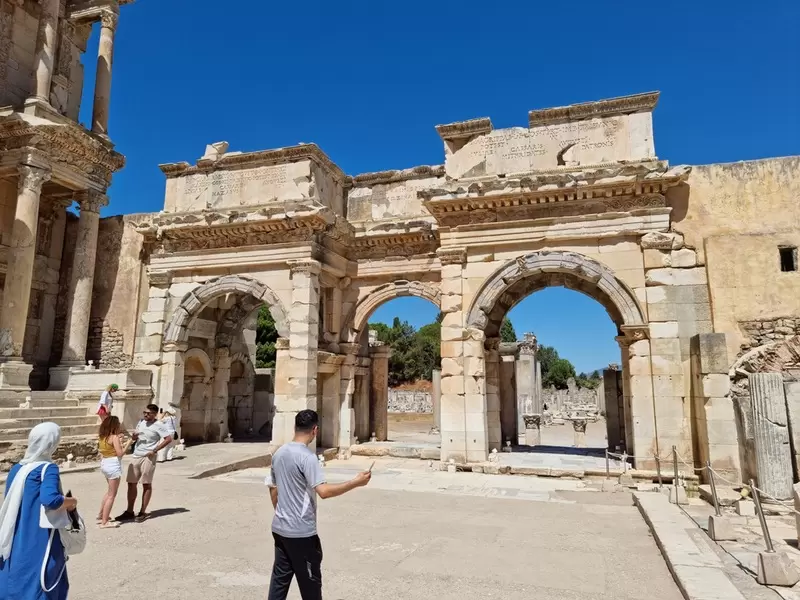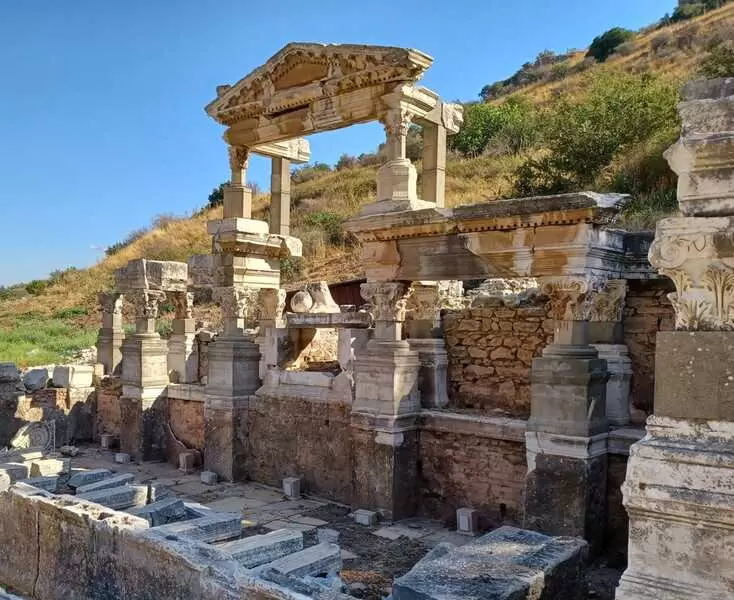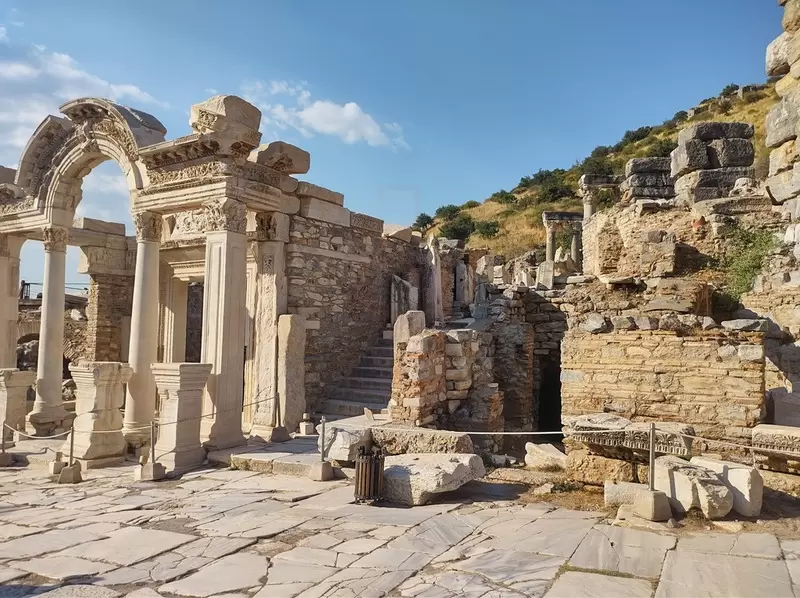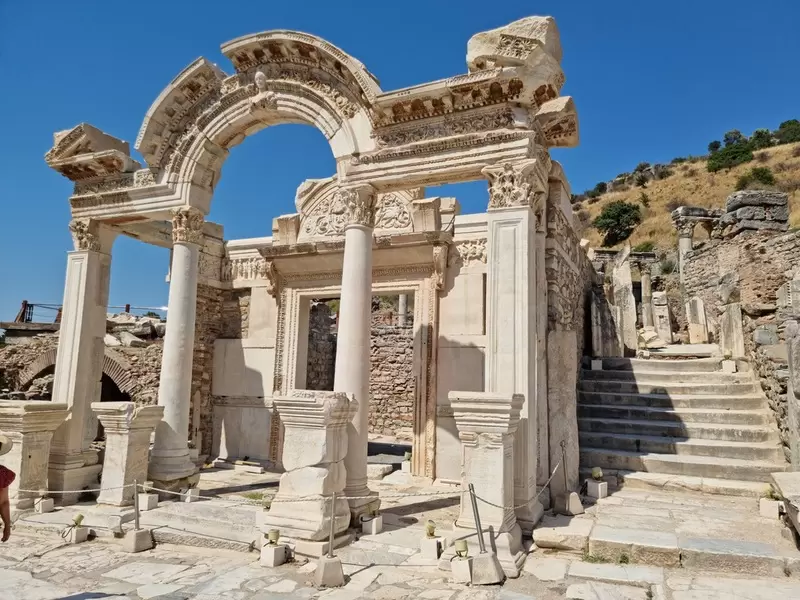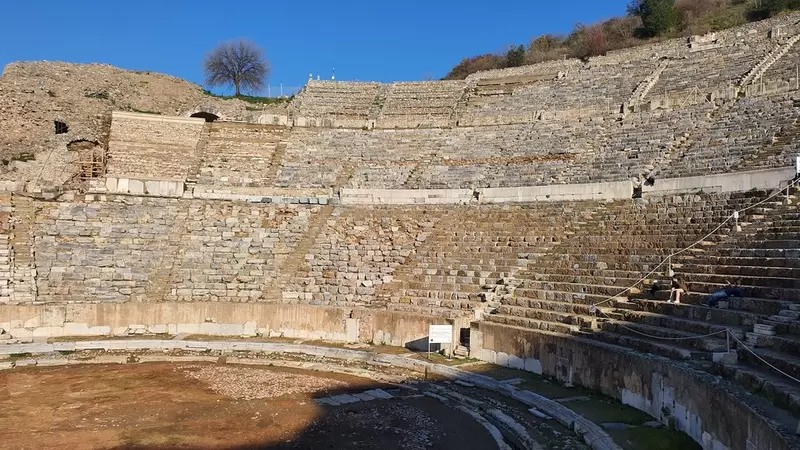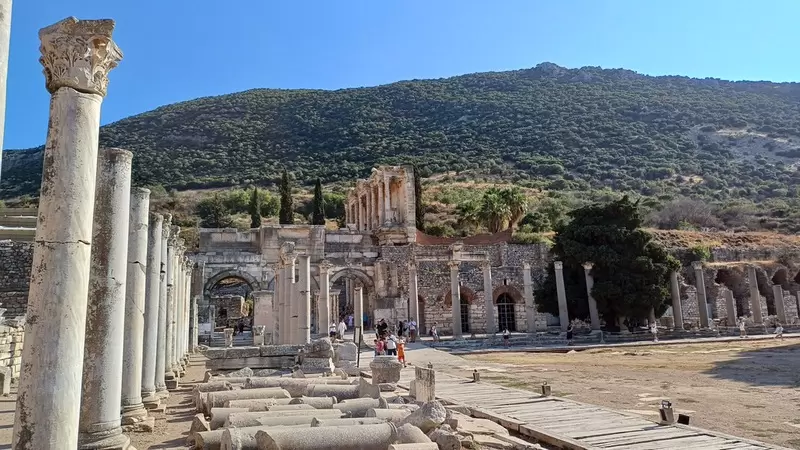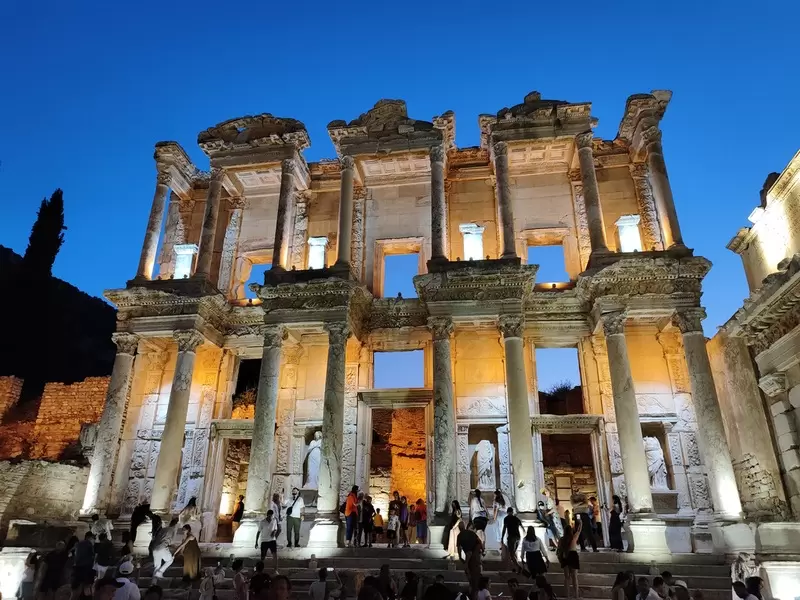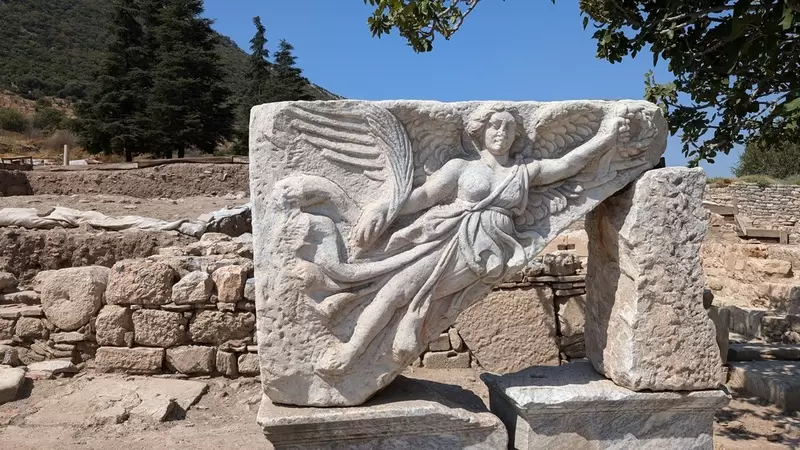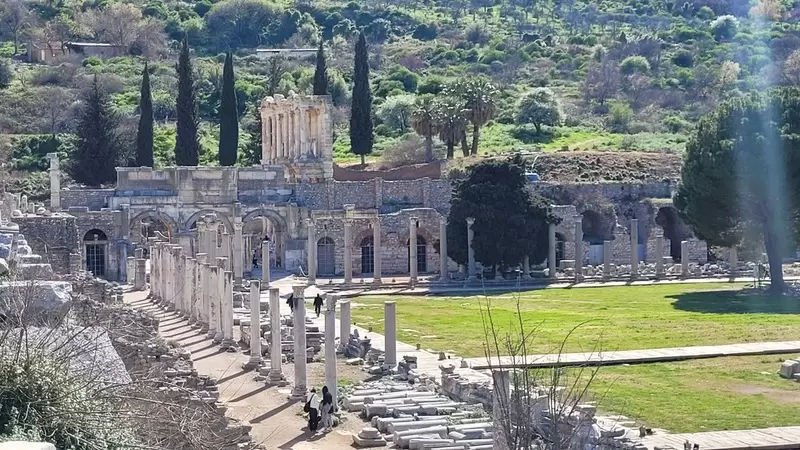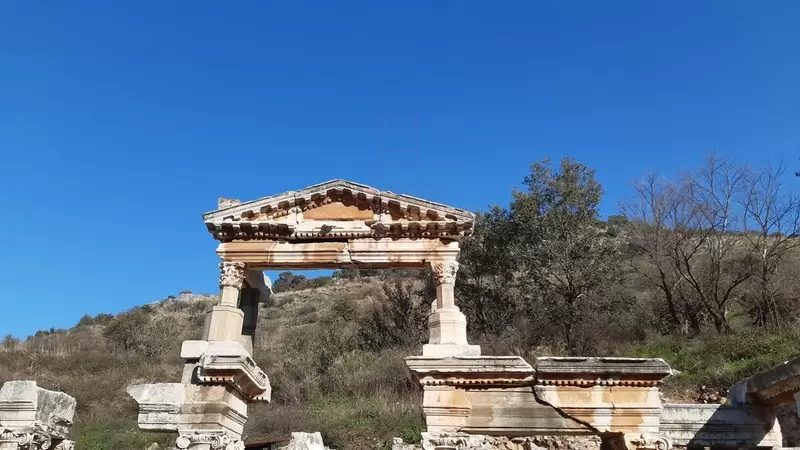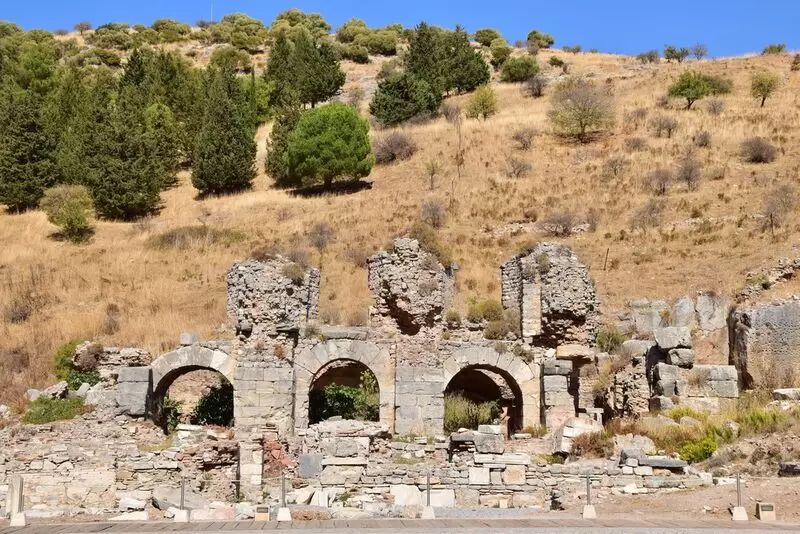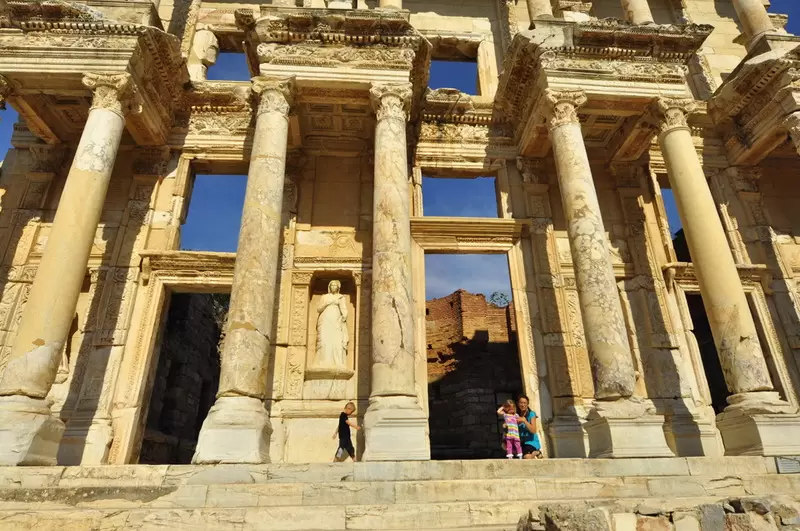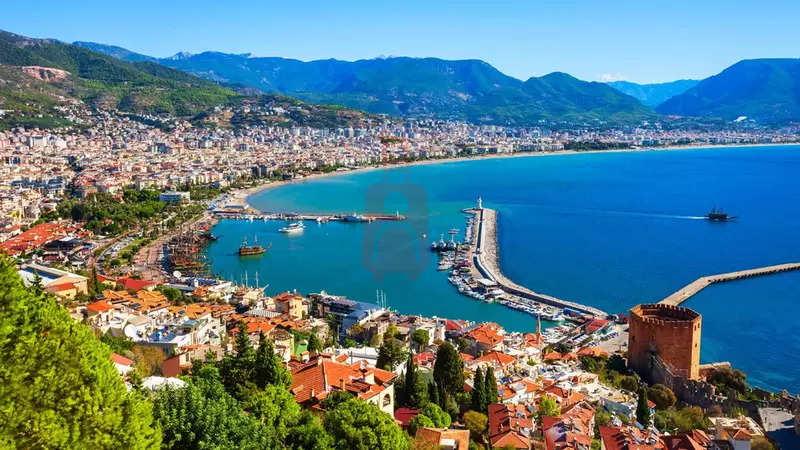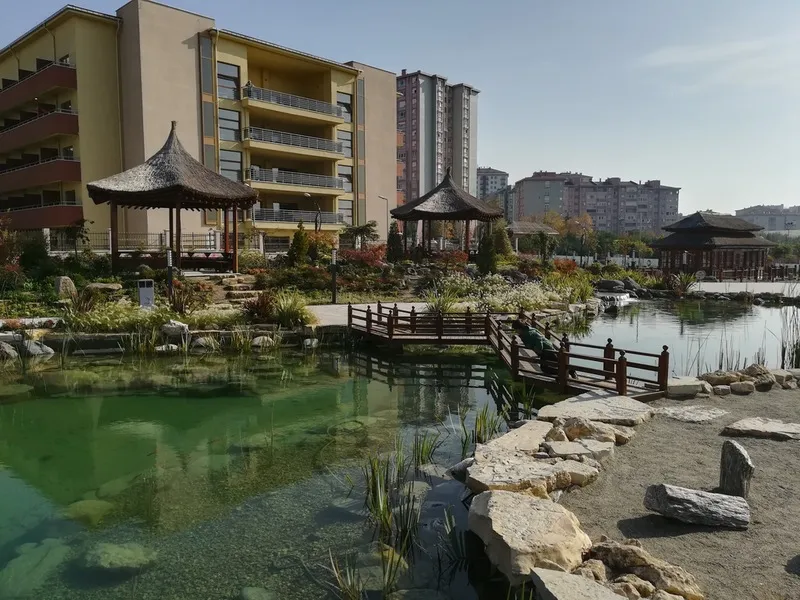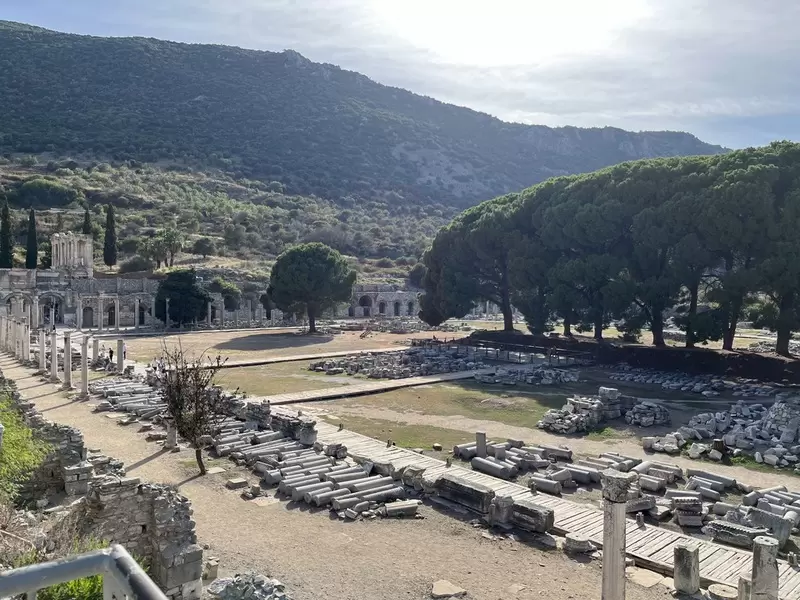
Welcome to Ephesus Ancient City! Situated in modern-day Turkey, near the town of Selçuk in the Izmir province, Ephesus is one of the most remarkable and well-preserved ancient cities in the world. With its rich history, stunning archaeological remains, and cultural significance, Ephesus invites visitors to step back in time and explore its fascinating past.
Historical Background:
Ephesus was founded around the 10th century BCE by the Ionian Greeks and quickly grew to become one of the most important cities in the ancient world. Over the centuries, it thrived under various civilizations, including the Greeks, Romans, and Byzantines. Ephesus played a pivotal role in trade, politics, and culture, and at its peak, it was a bustling metropolis and a center of learning and philosophy.
Archaeological Highlights:
Exploring Ephesus Ancient City allows you to witness the grandeur of its architectural wonders and experience the magnificence of this ancient civilization. Here are some notable features and highlights:
1. Library of Celsus: The Library of Celsus is perhaps the most iconic structure in Ephesus. Built in the 2nd century CE, it once held thousands of scrolls and served as a mausoleum for the Roman senator Tiberius Julius Celsus Polemaeanus. Admire its beautifully preserved facade, intricate carvings, and monumental staircases that lead to the grand entrance.
2. Great Theatre: The Great Theatre of Ephesus is one of the largest ancient theaters in the world, with a seating capacity of approximately 25,000 spectators. Imagine the vibrant performances and political rallies that took place in this majestic venue. The theater is renowned for its exceptional acoustics, allowing even a whisper to be heard throughout the entire auditorium.
3. Temple of Artemis: Although mostly in ruins today, the Temple of Artemis was one of the Seven Wonders of the Ancient World. Dedicated to the Greek goddess Artemis, it was a site of pilgrimage and considered a masterpiece of ancient architecture. While only a few columns remain, they still evoke the grandeur of the temple and its historical significance.
4. Terrace Houses: The Terrace Houses, also known as the Houses of the Rich, provide a glimpse into the lives of the wealthy citizens of ancient Ephesus. These well-preserved residences showcase intricate mosaics, frescoes, and advanced plumbing systems, offering insight into the opulent lifestyle enjoyed by the city's elite.
Visiting Tips:
- Ephesus is a popular tourist destination, so it's recommended to visit early in the day or during the offseason to avoid crowds.
- Wear comfortable shoes and clothing suitable for walking on uneven terrain, as the site covers a large area.
- Take ample drinking water, as the site can get hot during the summer months.
- Consider hiring a licensed guide or using an audio guide to enhance your understanding of the historical and cultural significance of the site.
Nearby Attractions:
While visiting Ephesus, you can also explore other nearby attractions. The House of the Virgin Mary, believed to be the final resting place of Mary, the mother of Jesus, is located nearby and is a popular pilgrimage site. Additionally, the Ephesus Archaeological Museum in Selçuk houses a remarkable collection of artifacts excavated from Ephesus and the surrounding areas, providing further insights into the ancient city's history.
In conclusion, Ephesus Ancient City offers a captivating journey into the magnificence of the ancient world. Immerse yourself in the historical and cultural richness of this archaeological site, and marvel at the impressive architecture and the legacy of a civilization that once thrived in this remarkable city.
Please note that archaeological sites are subject to ongoing research, restoration, and accessibility may vary. It's advisable to check for the latest information and guidelines from official sources before planning your visit to Ephesus Ancient City.
